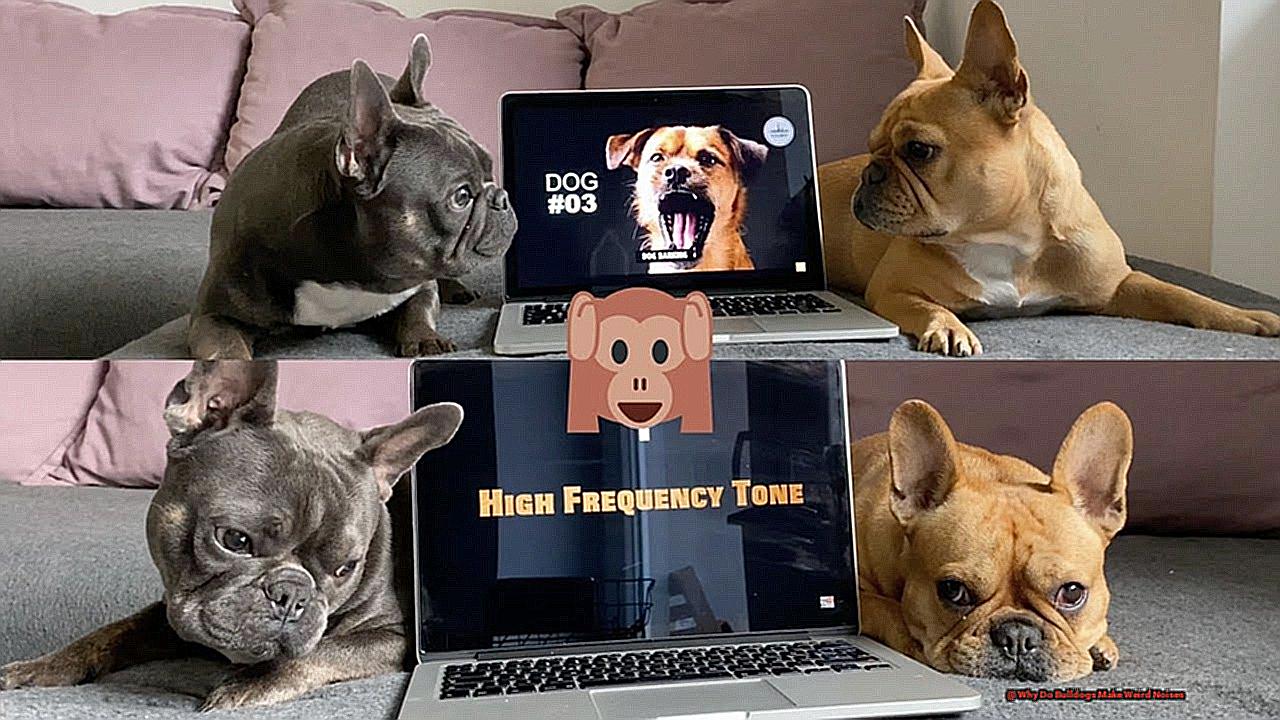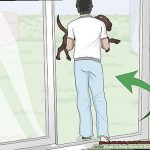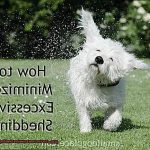Why Do Bulldogs Make Weird Noises?
Bulldogs are known for their lovable and goofy personalities, but one of the most endearing things about them is their unique way of communicating.
From snorts to snuffles, these pups have a whole range of noises that they use to express themselves. But have you ever stopped to wonder why bulldogs make these strange sounds?
So grab a cup of coffee (or some water for your furry companion) and get ready to learn all about why bulldogs make such weird noises.
Why Do Bulldogs Make Weird Noises?
Contents
- 1 Why Do Bulldogs Make Weird Noises?
- 2 The Role of Brachycephalic Airway Syndrome in Bulldog Noises
- 3 How a Bulldog’s Tongue Can Contribute to Strange Sounds
- 4 The Impact of Skull Shape on Bulldog Noises
- 5 Monitoring Your Bulldog’s Breathing and Identifying Potential Issues
- 6 Managing Triggers and Maintaining a Comfortable Environment for Your Bulldog
- 7 Addressing Allergies and Respiratory Infections in Bulldogs
- 8 Conclusion
If you’re a proud owner of a French bulldog, you’ve probably noticed that your furry companion makes some pretty strange noises. From snorting and snoring to grunting and snuffling, bulldogs have a wide range of vocalizations that can leave owners puzzled.
But why do they make these peculiar sounds? As an expert on bulldogs, I’m here to explain the reasons behind their unique noises.
Their Short, Squished Faces:
One of the main reasons for bulldogs’ weird noises is their short, squished faces. This unique facial structure makes it difficult for them to breathe properly, leading to snoring and snorting as they try to get enough air.
In fact, bulldogs are considered brachycephalic breeds, which means they have a shortened skull and snout. This condition, known as brachycephalic airway syndrome, can cause a host of respiratory issues in bulldogs.
Large Jowls:
Bulldogs are known for their adorable, droopy jowls, but these oversized cheeks can also contribute to their strange noises. Their large jowls can cause excessive drooling, resulting in gurgling and snuffling sounds. While this may seem concerning, it’s a normal occurrence in bulldogs and is nothing to worry about.
Shortened Soft Palate:
Another factor that contributes to bulldogs’ noises is their shortened soft palate. This is the soft tissue at the back of their throat that helps regulate airflow. In bulldogs, this soft palate can be too long for their shortened snouts and skulls, leading to difficulty breathing and creating snorting or wheezing sounds.
Respiratory Issues:
Unfortunately, because of their unique physical characteristics, bulldogs are prone to allergies and other respiratory issues. These health conditions can further contribute to their strange noises. It’s crucial for bulldog owners to be aware of these potential issues and seek medical attention if they notice any changes in their dog’s breathing patterns or noises.
Excitement and Physical Activity:
Some bulldog owners may also notice that their dogs make more noises when they are excited or active. This is because their short noses and respiratory issues can make it challenging for them to regulate their breathing during physical exertion. So, don’t be surprised if your bulldog makes more noise while playing or going for a walk in the park.
The Role of Brachycephalic Airway Syndrome in Bulldog Noises
If you’re a French bulldog owner, you may have noticed your furry friend making some interesting noises that are unique to their breed. These noises, ranging from snorts and snuffles to grunts and wheezes, are not just adorable quirks but can also be signs of a common condition known as brachycephalic airway syndrome.
So, what exactly is brachycephalic airway syndrome and how does it impact bulldogs?
What is Brachycephalic Airway Syndrome?
Brachycephalic airway syndrome is a condition characterized by various anatomical abnormalities in the respiratory system. These abnormalities include narrow nostrils, elongated soft palate, and narrowed trachea.
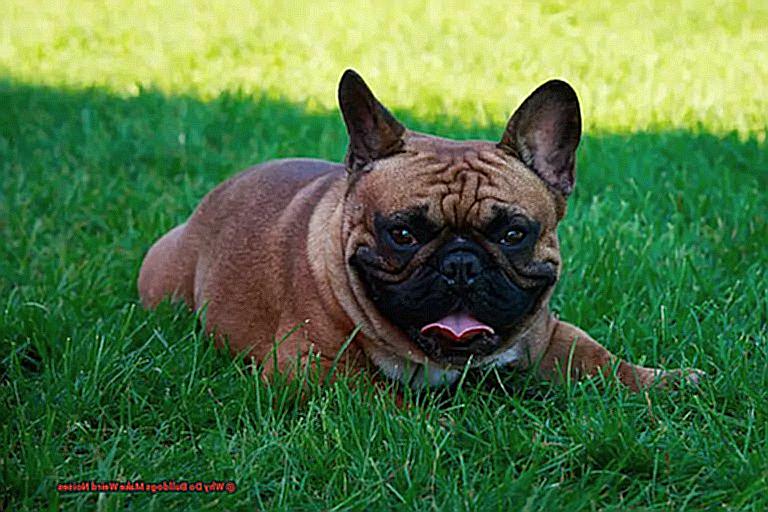
These structures are responsible for allowing air to flow in and out of the body during breathing. However, in bulldogs, these structures are shorter and narrower, making it more difficult for them to breathe compared to other dog breeds.
How Does This Syndrome Affect Bulldogs?
Bulldogs are particularly prone to brachycephalic airway syndrome due to their flat faces and short snouts. As a result, they may experience difficulty breathing, especially during physical activity or in warm weather.
This can lead to snorting, snoring, and other strange noises as they struggle to take in enough oxygen.
Potential Health Issues
While these noises may seem cute and endearing, brachycephalic airway syndrome can lead to more serious health issues for your beloved Frenchie. Due to their compromised respiratory system, bulldogs are at a higher risk of developing heatstroke and respiratory infections.
It’s important for owners to be aware of these potential health risks and take steps towards managing them.
Managing Brachycephalic Airway Syndrome
If you suspect your French bulldog may have brachycephalic airway syndrome, it’s important to consult with a veterinarian. They can provide a proper diagnosis and recommend appropriate treatment options. In some cases, surgery may be necessary to correct the anatomical abnormalities and improve your dog’s breathing.
In addition to medical interventions, there are also some management strategies that can help alleviate the symptoms of brachycephalic airway syndrome in bulldogs:
Keep them cool: Bulldogs are sensitive to heat, so make sure they have access to shade and plenty of water during hot weather.
How a Bulldog’s Tongue Can Contribute to Strange Sounds
If you’re a proud owner of a French bulldog or any other bulldog breed, you may have noticed some unusual noises coming from your furry companion. From snorts and grunts to gurgles and snoring-like sounds, it’s common for bulldogs to make noises that may seem strange to their owners.
But have you ever wondered why? Well, it turns out that a bulldog’s tongue plays a significant role in creating these unique sounds.
In this post, we’ll dive deeper into the topic of “How a Bulldog’s Tongue Can Contribute to Strange Sounds,” using my expertise as a bulldog owner and extensive research on the topic. So if you’re curious about why your bulldog makes those weird noises, keep reading.
The Unique Tongue Structure of Bulldogs
One of the main reasons why bulldogs make strange noises is due to their unique tongue structure. Unlike other dog breeds, bulldogs have short, flat snouts and large jaws, resulting in their tongues being larger and more active. This larger tongue can lead to various sounds, especially when they pant or breathe heavily.
Flapping Tongue Noises
If you’ve ever seen a bulldog pant, you may have noticed their tongue flopping out of their mouth. This flapping motion can create a distinct sound that many owners describe as flapping or slapping. It’s a common noise among bulldogs and adds to their overall charm.
Blocked Airways and Snorting Noises
In some cases, a bulldog’s tongue may block their airway slightly while panting, leading to snorting or grunting noises. This happens because their short snouts and enlarged tongues can cause breathing difficulties and result in these unusual sounds.
Rough Texture and Raspy Noises
Another factor that contributes to strange noises made by bulldogs is the texture of their tongue. Many bulldogs have rough or wrinkled tongues, which can create a raspy or snoring-like noise when they breathe. This noise may be more noticeable when they sleep or are in a relaxed state.
Gurgling Noises and Excessive Drooling
The excessive drooling that bulldogs are known for can also contribute to strange noises. Due to their large tongues, bulldogs produce more saliva than other breeds, which can cause gurgling or bubbling sounds when they pant or breathe heavily.
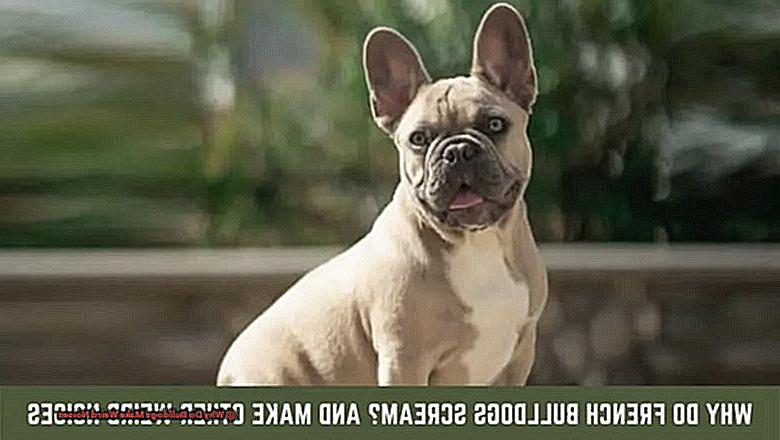
The Impact of Skull Shape on Bulldog Noises
You may have noticed that your bulldog makes some pretty strange and entertaining noises, from snorts and grunts to snoring and gurgling. But did you know that these odd sounds are not just a quirky characteristic of the breed? In fact, the unique shape of a bulldog’s skull actually plays a significant role in their ability to produce these noises. As an expert on the topic, let me break down the impact of a bulldog’s skull shape on their distinct sounds.
The first thing to note is that bulldogs have a short, flattened skull known as brachycephaly. This is a result of selective breeding for their distinctive appearance, which has unfortunately led to some health issues for the breed. But for the purpose of this discussion, let’s focus on how this skull shape affects their noises.
The shortened skull creates a smaller space for the nasal cavity and respiratory system, making it difficult for air to pass through smoothly. As a result, bulldogs often have narrow nostrils, elongated soft palates, and narrowed airways. All of these structural abnormalities contribute to their distinct snorting, snoring, and grunting noises.
But it’s not just their nose and throat that are affected by their skull shape. The flattened face also leads to a compressed upper jaw, which can cause breathing difficulties and further contribute to their unique noises. In fact, some bulldogs may even develop a condition known as brachycephalic airway syndrome, which can be severe enough to require corrective surgery.
So why is it important for owners to be aware of their bulldog’s skull shape? Well, apart from understanding why your dog makes those weird noises, it’s crucial for their overall health and well-being. Choosing a reputable breeder who prioritizes the health of their bulldogs over their appearance can help prevent any potential breathing issues. And regular visits to the veterinarian can also help manage any existing problems and ensure that your furry friend is as healthy as possible.
Monitoring Your Bulldog’s Breathing and Identifying Potential Issues
Your bulldog’s snorts and grunts are not just cute quirks, they can also be early indicators of potential health issues. As a proud owner of a French Bulldog, it’s important to keep a close eye (or should I say ear) on their breathing patterns to ensure their well-being. Here’s why:
The Unique Breathing of Bulldogs
Bulldogs are known for their adorable and unique facial structure, with their short snouts and compressed airways. While this adds to their charm, it can also lead to breathing difficulties. These physical traits make it harder for them to take in enough air, resulting in snorting, snoring, or wheezing noises.
Normal vs. Abnormal Sounds
It’s crucial for bulldog owners to be able to distinguish between normal and abnormal breathing sounds. Normal breathing for a bulldog should be relatively quiet and effortless. If you notice your bulldog making excessive snorting or grunting noises while at rest, it could be a sign of an obstructed airway. This could be caused by an object stuck in their throat or an underlying health condition.
Brachycephalic Airway Syndrome
Bulldogs are prone to a condition called brachycephalic airway syndrome, which can cause difficulty breathing and lead to excessive panting and wheezing. This condition can be exacerbated by hot weather or strenuous exercise. To prevent this, it’s important to keep your bulldog cool and well hydrated during these activities.
Take a Break, Bulldog.
If you notice your bulldog struggling to breathe or making abnormal noises while exercising, it’s best to take a break and let them rest. This will allow them to catch their breath and prevent any further complications.
Reverse Sneezing: Harmless but Keep an Eye Out
Another potential issue that can cause weird noises in bulldogs is reverse sneezing. This occurs when the dog’s soft palate becomes irritated and causes them to make a loud, snorting noise while trying to clear their throat. While this can be alarming to witness, it is usually harmless and will pass on its own. However, if your bulldog experiences frequent episodes of reverse sneezing or has difficulty breathing afterwards, it’s best to consult with a veterinarian for peace of mind.
Managing Triggers and Maintaining a Comfortable Environment for Your Bulldog
As a French Bulldog owner, you know that your furry friend can make some pretty unique and humorous noises. But did you know that some of these noises can actually be a sign of discomfort or distress? As experts in managing triggers and maintaining a comfortable environment for bulldogs, we’re here to share with you the importance of understanding and addressing these strange noises.
Bulldogs are known for their adorable snorts and grunts, but these sounds can also be early warning signs of potential health problems. It’s crucial for owners to listen closely to their bulldog’s breathing patterns and understand what triggers these noises. This not only helps to ensure their overall well-being but also promotes a happy and comfortable environment for your furry friend.
Respiratory issues are a common trigger for weird noises in bulldogs, due to their short snouts. They may struggle with proper breathing, leading to snoring, snorting, and other unusual sounds. It’s important for owners to keep an eye out for any changes in their bulldog’s breathing patterns and consult with a veterinarian if necessary.
Allergies can also be a trigger for weird noises in bulldogs. Bulldogs are prone to allergies, which can cause them to make unusual noises such as wheezing or sneezing. To help reduce these noises, it’s important for owners to identify and eliminate any potential allergens from their bulldog’s environment.
Stress and anxiety can also play a role in weird noises from your bulldog. Changes in routine, loud noises, or separation anxiety can all contribute to stress levels. Owners should try to create a calm and consistent environment for their bulldog and provide them with plenty of mental and physical stimulation to help reduce stress.
However, it’s important to note that sometimes these strange noises can be a sign of an underlying health issue. If your bulldog is making unusual noises accompanied by other symptoms, it’s crucial to consult with a veterinarian for a proper diagnosis and treatment plan.
So, how can you maintain a comfortable environment for your bulldog? First and foremost, make sure they have access to clean air and water at all times. Regular grooming can also help keep their skin and coat healthy, which can prevent allergies and respiratory issues. Providing a comfortable sleeping area that elevates their head slightly can also aid in breathing.
Addressing Allergies and Respiratory Infections in Bulldogs
French bulldogs are beloved for their unique appearance, with their flat, wrinkled faces and pushed-in noses. However, these features can also make them more susceptible to allergies and respiratory infections. As an expert in addressing these issues in bulldogs, I want to share my knowledge and experience to help you keep your furry friend happy and healthy.
Allergies are a common culprit for strange noises in bulldogs. These can be triggered by environmental factors such as pollen or dust, as well as food allergies. Some symptoms of allergies in bulldogs include sniffling, sneezing, excessive scratching, and wheezing or snorting noises. If you notice any of these signs, it’s important to consult with your veterinarian for proper diagnosis and treatment.
In some cases, allergy testing may be recommended to determine the specific triggers for your bulldog’s allergies. This can help you make necessary adjustments to their environment and diet to alleviate their symptoms.
Respiratory infections can also cause weird noises in bulldogs. These can be bacterial or viral infections and can result in symptoms such as coughing, difficulty breathing, and nasal discharge. It’s crucial for owners to pay attention to any changes in their bulldog’s breathing patterns and seek veterinary care if necessary.
To prevent respiratory infections, it’s important to keep your bulldog’s face clean and dry. Their short snouts make it easier for bacteria to accumulate, so regular cleaning is essential. It’s also important to avoid exposing them to other sick animals.
If your bulldog does develop a respiratory infection, treatment may include antibiotics, anti-inflammatory medications, and supportive care such as humidifiers or steam showers to help with breathing. Regularly cleaning their bedding and living areas can also help reduce exposure to allergens and bacteria.
In severe cases, surgery may be recommended to correct any structural issues in a bulldog’s airways that may contribute to breathing difficulties. It’s important to work closely with your veterinarian to determine the best course of action for your furry companion.
Also Read: What Two Dogs Make French Bulldog
Conclusion
In conclusion, bulldogs are not just your average canine companions. They possess a whole range of unique traits, including their lovable personalities and their distinct way of communicating through various noises. But have you ever wondered why they make these strange sounds?
According to experts in the field, the answer lies in their physical characteristics. With their short, squished faces, large jowls, shortened soft palate, and respiratory issues, it’s no wonder that bulldogs produce such odd noises. Their excitement and physical activity can also contribute to their vocalizations.
However, it’s not enough to simply understand why bulldogs make these noises; responsible owners must also be vigilant in monitoring them for potential health issues. Brachycephalic airway syndrome, reverse sneezing, allergies, and respiratory infections are all common triggers for strange noises in bulldogs.
As pet parents, it is our duty to create a comfortable environment for our furry friends and keep a close eye on their breathing patterns. Regular visits to the veterinarian and proper grooming can help prevent or manage any potential health problems.
